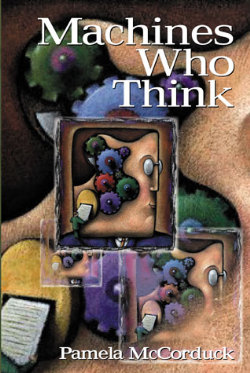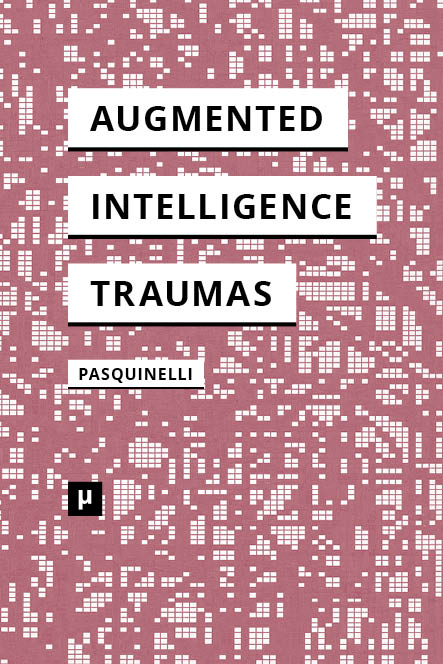Glass Bead, 3: Site 2: Dark Room: Somatic Reason and Synthetic Eros (2019) [EN, FR, JP]
Filed under journal | Tags: · body, eroticism, love, reproduction, sex, thinking

“This issue, produced in the framework of Okayama Art Summit 2019 (‘IF THE SNAKE’, curated by Pierre Huyghe, September 27 – November 24 2019, Japan), focuses on the concrete conditions of embodied thought. From the assessment of historical attempts at grounding critique in the body to the exploration of contemporary issues surrounding situated knowledge, from the analysis of the aesthetic and political economy at play in the encounter with advanced human-like sex robotics to the ways in which algorithms are transforming our sense of intimate relationships, and from the ways in which cruising practices subvert dominant discourses on architecture and the city to the libidinal economy at work in specific art forms, the contributions gathered in this issue navigate the fault line that articulates erotics and rationality.
‘Site 2. Dark Room: Somatic Reason and Synthetic Eros’ contends that contemporary upheavals concerning love, sex and reproduction are not mere side issues that can be safely dealt with in various already existing discursive regimes (e.g. biology, psychology, identity politics) but crucial transformative vectors for developing a renewed understanding of transdisciplinary reason.
The publication of this issue will be spanned across the duration of the triennial, with one new contribution uploaded every week.
With contributions by Adam Berg (artist, writer), Louis Chude-Sokei (writer), Cruising Pavilion (curatorial collective), Sally Haslanger (philosopher), Anna Longo (philosopher), Alexandra Hedako Mason (researcher), Matthew Poole (writer), Patricia Reed (artist, writer), Oli Surel (writer), and Three Billions of Perverts (archival material).”
Publisher Glass Bead, September-November 2019
HTML, PDFs (English)
HTML, PDFs (French)
PDFs (Japanese, added on 2020-1-15)
See also Issue 2
Pamela McCorduck: Machines Who Think: A Personal Inquiry into the History and Prospects of Artificial Intelligence, 2nd ed. (1979/2004)
Filed under book | Tags: · artificial intelligence, computing, information, machine, robotics, robots, thinking

“Pamela McCorduck first went among the artificial intelligentsia when the field was fresh and new, and asked the scientists engaged in it what they were doing and why. She saw artificial intelligence as the scientific apotheosis of one of the most enduring, glorious, often amusing, and sometimes alarming, traditions of human culture: the endless fascination with artifacts that think. Machines Who Think was translated into many languages, became an international cult classic, and stayed in print for nearly twenty years.
Now, Machines Who Think is back, along with an extended addition that brings the field up to date in the last quarter century, including its scientific and its public faces. McCorduck shows how, from a slightly dubious fringe science, artificial intelligence has moved slowly (though not always steadily) to a central place in our everyday lives, and how it will be even more crucial as the World Wide Web moves into its next generation.”
First edition published by W. H. Freeman, 1979.
Publisher A.K. Peters, Natick, MA, 2004
ISBN 1568812051, 9781568812052
xxx+565 pages
Reviews: Philip Mirowski (AI Magazine, 2003), Richard Ennals (AI & Society, 2004), Mike Holderness (New Scientist, 2004).
PDF (4 MB)
Comment (0)Matteo Pasquinelli (ed.): Alleys of Your Mind: Augmented Intelligence and Its Traumas (2015)
Filed under book | Tags: · algorithm, artificial intelligence, brain, cognition, computation, cybernetics, technology, thinking

“One day, it will not be arbitrary to reframe twentieth century thought and its intelligent machines as a quest for the positive definition of error, abnormality, trauma, and catastrophe—a set of concepts that need to be understood in their cognitive, technological and political composition. It may be surprising for some to find out that Foucault’s history of biopower and technologies of the self share common roots with cybernetics and its early error friendly universal machines. Or to learn that the desiring machines, which “continually break down as they run, and in fact run only when they are not functioning properly” (Deleuze and Guattari), were in fact echoing research on war traumas and brain plasticity from the First World War. Across the history of computation (from early cybernetics to artificial intelligence and current algorithmic capitalism) both mainstream technology and critical responses to it have shared a common belief in the determinism and positivism of the instrumental or technological rationality, to use the formulations of the Frankfurt School. Conversely, the aim of this anthology is to rediscover the role of error, trauma and catastrophe in the design of intelligent machines and the theory of augmented cognition. These are timely and urgent issues: the media hype of singularity occurring for artificial intelligence appears just to fodder a pedestrian catastrophism without providing a basic epistemic model to frame such an “intelligence explosion”.”
With texts by Benjamin Bratton, Orit Halpern, Adrian Lahoud, Jon Lindblom, Catherine Malabou, Reza Negarestani, Luciana Parisi, Matteo Pasquinelli, Ana Teixeira Pinto, Michael Wheeler, Charles Wolfe, and Ben Woodard.
Publisher meson.press, Lüneburg, November 2015
Creative Commons BY-SA 4.0 License
ISBN 9783957960658 (print) 9783957960665 (PDF)
212 pages

